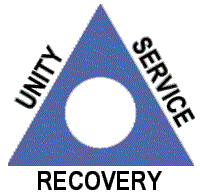At Al-Anon group meetings in Vancouver , family members, close relatives and friends of addicts come with each other to share their knowledge, understanding, experience, strength and hope. Al-Anon’s philosophy is that men and women cannot control or stop another person’s alcohol addiction. In the same way addicts who acknowledge and accept Step One of Alcoholics Anonymous declare that they are powerless over alcohol and drugs, Al-Anon members teach and educate powerlessness over loved ones and family member addictions.

However Al-Anon’s companion philosophy is that an individual is entitled to have a serene life even if a loved one chooses to keep on living in active addiction. By joining hand-in-hand and working together to share experiences and knowledge, members in Al-Anon learn and understand tools and skills for living decently, honestly and serenely whether a loved one is actively using or is within recovery. In Al-Anon, members “take what they should like and leave the rest.” What this means is that in almost every group meeting or assembly, members hear something that gives them understanding of their own behavior and attitudes.
Many people embark on Al-Anon using the outlook, expectation or hope that they will learn and understand the strategies for curing and healing a loved one’s drug or alcohol addiction. People may be disappointed and frustrated to understand and fully grasp that no such secret and technique exist. Nevertheless, a lot of people find that by gaining strength and acquiring serenity, and showing their loved ones that they trust and have confidence in them to make their very own decisions and choices, their family members often gain strength too. Whenever people become less preoccupied with a loved one’s drug addiction or dependency , addiction seems to lose its power of them. It can also be not unusual to discover that once people change their need to control and discover how to create boundaries and look after themselves, the addict also begins to change and transform and sometimes seeks help in drug and alcohol treatment centers to recover from their addictions.
There are numerous slogans people learn in Al-Anon which help them practice Al-Anon principles and guidelines in their daily lives. One favorite and preferred is “don’t just do something, sit there.” So frequently, people who worry about their addicts’ lives want to leap in and “solve” their problems. However in Al-Anon they learn to hold back before acting to make sure that what they THINK they must do is really the correct action. For instance, whenever a father or mother receives a phone call from an addicted child seeking money, shelter or some other favor, the normal reaction is to want to help or assist right away. But in Al-Anon, people learn how to sit still and think first. People learn to “give an addict the dignity of making his or her own mistakes,” for that is how addicts may become decent and responsible persons. This may be difficult, but as people share their experiences in Al-Anon they learn that “taking contrary action” is often the best help they can give their addicted family members.
Another helpful slogan is “zip your lip.” Often, an individual’s natural tendency is to provide advice, tell the addict how to proceed and how to get it done. But unless an opinion or advice is sought, they learn to simply listen and say things to the addict such as “I understand you will figure this out” or “that is very interesting.” The addict doesn’t want to be threatened, cajoled or see someone’s anger. If they know they could be listened to without being judged, communication and conversation with them remain open and, hopefully, the addict will at some point realize and recognize they CAN go to the loved one or family member for help and assistance in healing and recovery and also be accepted for who they are. As a result of Al-Anon people learn that often, the fewer questions they will ask, the greater details and selective information an addict gives them.
Al-Anon has helped many people find solutions that lead to serenity. Regardless of what an individual’s religious beliefs are or even if them lack them entirely, people are sure to find help in Al-Anon. Encircled by caring and compassionate people whose struggles are similar to others battling with addiction problems, they will learn tools and skills for taking care of themselves, setting boundaries, and achieving serenity. Just for today, decide to walk one’s own path towards serenity so that the addict can walk theirs.
